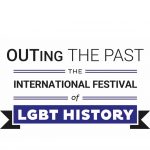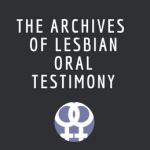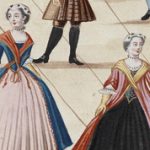 OUTing the Past (Web)
OUTing the Past (Web)
Time: 09.-10.09.2021
Venue: virtual space
OUTing the Past: The International Festivals of Lesbian Gay Bisexual & Trans History is an international celebration that comprises of events throughout the year and around the world, and a conference and gathering for academics and activists once a year in February.
After a delay necessitated by the COVID-19 pandemic, the organizers are excited to showcase the work of their very illustrious – and patient – presenters, which highlights the various roles creative productivity can play in better understanding the queer past.
Full programm (Link)
Here are a few of the presentations included in the programme:
- After Hours Chez Madame Arthur: Staging a 1970s Lesbian Bar Material Engagement and Commemoration
- Foul, Filthy, Stinking Muck: The LGBT Theatre of Project Arts Centre 1966 to 2000
- Hear Us Out: Performance Techniques for a Queer Celebration of Age
- Storm? Weather: How Gen Z Students Developed, Acted and Danced the Stonewall Uprising and its After-Effects
- Historiographic Metafiction and the Hush of the (Queer) Archive
- A free online workshop on „Writing LGBT+ Historical Fiction / Drama“ led by author and playwright Hilary McCollum
Biographies of the creative artists, practitioners and academics contributing to the event can be found by clicking here (Link).
In order to respect the various circumstances of our international group of presenters, Completing the Past will be an online conference. Registration is free and will allow for engagement with the programme, presenters and other registered attendees over the two-day event. Registration is free via Eventbrite (Link).
Source: Qstudy-l







